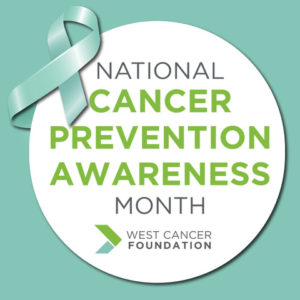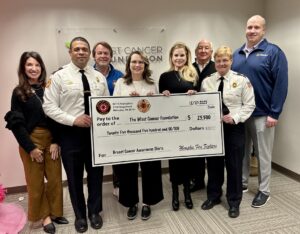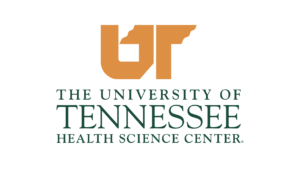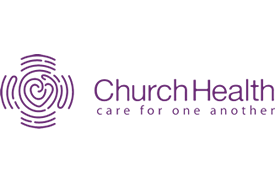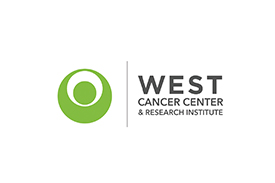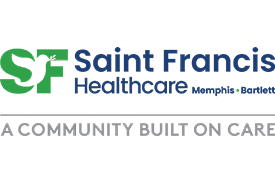February is recognized as National Cancer Prevention Awareness Month to encourage people to be proactive about their personal health and to help increase awareness for early detection of cancer.
In this blog, Dr. Ari VanderWalde, Professor, Division of Epidemiology, University of Memphis, and Vice President of Clinical Development at Caris Life Sciences, joins us to discuss cancer prevention. “The saying goes ‘an ounce of prevention is worth a pound of cure’. This is particularly true for cancer,” says Dr. VanderWalde. “Cancer is a disease that can often be prevented. When it cannot be prevented, it can often be found early enough that it will not cause any major harm and can easily be cured.”
Following heart disease, cancer is the second most common cause of death in the US. According to the American Cancer Society, a total of 1.9 million new cancer cases and 609,360 deaths from cancer are expected to occur in the US in 2022, which is about 1,670 deaths a day.
While those numbers are alarmingly high, there is hope. The cancer death rate continues to drop, which can be contributed to factors such as combination treatments for cancers, chemotherapy after surgery for breast and colon cancer, fewer people smoking, new vaccines against cancer-causing viruses like hepatitis and human papilloma virus (HPV), and detection through routine screening.
It is very important to stay proactive about your health and overall wellbeing. The top three ways you can help deter major health issues from cancer include getting routine cancer screenings, getting vaccinations for hepatitis B and HPV, and having an active lifestyle that minimizes high-risk activities. Below is more information on how you can be proactive and help prevent cancer.
Cancer Screenings
Cancer screenings are tests that aim to detect cancer before signs or symptoms appear and can help doctors find cancer at an earlier, more treatable stage. It is important to be proactive about your health and get regular screenings, even if you feel fine. The U.S. Preventive Service Task Force (USPSTF) recommends early detection screenings for breast cancer, cervical cancer, colorectal cancer, and lung cancer. Many physicians also provide screenings for prostate cancer.
Dr. VanderWalde adds, “It is important to talk with your doctor about when is the appropriate time for starting cancer screening. Mammograms, colonoscopies, pap smears, and in some cases chest CT scans are important tools physicians have to find cancer early enough to easily cure it.” When discussing screenings with your doctor, it is good to talk about risk factors such as family history and lifestyle behaviors to figure out a screening schedule that is right for you.
Vaccines
Vaccines can also help lower the risk of developing cancer. The hepatitis B vaccine can help lower the risk of developing liver cancer, and the HPV vaccine helps prevent most cervical cancers along with other cancers including vaginal, vulvar, mouth, throat, and head and neck cancers. “It is important to get these vaccines as early as possible,” says Dr. VanderWalde. “Hepatitis vaccines should be given early in infancy when possible, but if you haven’t gotten them you should get them as soon as possible. HPV vaccines need to be given in adolescence or early adulthood.”
Proactive Lifestyle
Dr. VanderWalde points out that cancer deaths have been steadily decreasing in the US over the last 40 years. “The biggest reason for that is due to lifestyle changes. The percentage of people who smoke has dropped remarkably since the 1980s. Tobacco is responsible for one out of every five cancer deaths. Smoking is not only associated with 90% of lung cancers, but is also associated with fifteen other types of cancer, including cancers of the colon, pancreas, kidney, bladder, head, and neck, and others. Quitting smoking, or not using tobacco, is perhaps the most important thing you can do to prevent cancer.”
In addition to cancer screenings for early detection and vaccines, healthy lifestyle habits can also help prevent cancer. Incorporating a healthy diet and exercise into your daily routine, along with UV protection (wear your sunscreen!), and avoiding smoking and the use of tobacco are a few of the immediate ways you can start being proactive about cancer prevention today.
West Cancer Foundation & You
We are taking the next step in fighting cancer by supporting cancer patients, promoting the overall health of our community, and investing in the most promising research and education.
It is amazing the difference education and awareness can make, so don’t forget to check in with your loved ones and help spread awareness about cancer prevention. Together, we can make a difference.
Sources:
https://www.cancer.org/latest-news/facts-and-figures-2022.html
https://www.cancer.net/navigating-cancer-care/prevention-and-healthy-living/cancer-screening
https://www.cancer.gov/about-cancer/screening/screening-tests
https://www.cdc.gov/cancer/dcpc/prevention/screening.htm
https://www.mayoclinic.org/diseases-conditions/hpv-infection/in-depth/hpv-vaccine/art-20047292

